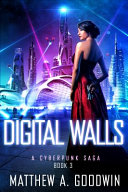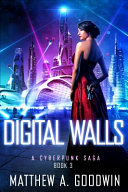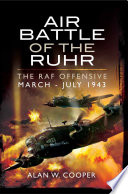Discover our list of authors like Neal Stephenson, who write compelling narratives in worlds beyond our everyday existence.
Neal Stephenson is a well-known American author whose speculative fiction delves into science, history, and cyberpunk. His profound explorations in mathematics, cryptography, and philosophy have distinguished him. He currently has 139 titles available on Amazon and counting. His multifaceted career uniquely blends storytelling, science, and tech innovation, similar to these authors like Neal Stephenson.
What Is Cyberpunk? Cyberpunk is a subgenre of science fiction characterized by a dystopian future setting, typically featuring a society controlled by high technology and large corporations. This technology often leads to significant social issues and class disparities.
The genre emerged in the 1980s, and the term itself is a portmanteau of “cybernetics” and “punk,” reflecting its core themes of advanced technology (like artificial intelligence and cybernetics) mixed with a rebellious, countercultural ethos.
Must-Read Authors Like Neal Stephenson
For more fantasy recommendations, you might also enjoy exploring best fantasy authors, authors like Brandon Sanderson, authors like George R.R. Martin, or discover our comprehensive guide to best fantasy authors.
1. Matthew A. Goodwin
Matthew A. Goodwin, a passionate storyteller from childhood, dedicated over a decade to wildlife care as a zookeeper. The birth of his son ignited his pursuit of becoming a full-time author. Known for penning the international bestseller, A Cyberpunk Saga, Goodwin’s works explore man’s relationship with technology through sweeping space operas and gritty cyberpunk narratives. A genre enthusiast, he co-founded Cyberpunk Day, celebrating the fusion of high-tech and low life in popular culture.
Into Neon is the first in a series by Matthew A. Goodwin. It tells the tale of an orphan whose calm life suddenly takes a turn for the chaos when he receives a message straight out of the past. On the run and fearing for his life, he must find a way to unlock his mind’s hidden secret.
Goodwin’s approach to cyberpunk fiction resonates particularly well with 2025 readers grappling with AI integration, digital privacy concerns, and the increasing blur between virtual and physical reality. His exploration of consciousness and technology feels prophetic given current developments in neural interfaces and brain-computer technology.
“Light crept up the walls as the sun peaked, an orange hue over a calm sea appearing on all six sides of the room.”
Matthew A. Goodwin, Into Neon
2. Al Davidson
Al Davidson is a self-described comic book junkie who spends most of his time reading when he isn’t writing. Living in the mountains of California overlooking the Pacific Ocean, Davidson has plenty of time and space to fabricate his fantasy and spy thrillers to the utmost delight of his wide base of readers.
In Kill, Switch, protagonist Joshua must spend his life running from bounty hunters determined to get their share of the ten million dollar prize on Joshua’s head. His head is worth ten million dollars because it holds a piece of technology others would happily kill to obtain. Can Joshua stay alive long enough to exact revenge on those who deserve it?
Davidson’s work tackles themes of surveillance capitalism and data ownership that have become increasingly relevant in our post-pandemic digital society. His portrayal of technology as both liberating and imprisoning speaks directly to contemporary concerns about big tech’s influence on our daily lives.
“In the beginning, the protesters had numbered in the mid-five figures and DC had become a small warzone.”
Al Davidson, Kill, Switch
3. J. Paul Roe
J. Paul is a seasoned copywriter with over fifteen years of experience and is an accomplished ghostwriter. He leveraged his marketing, sociology, cybersecurity, graphic design, and creative writing education into a robust freelance career, crafting compelling screenplays. Beyond work, he gets his kicks from practicing historical fencing, playing computer role-playing games, and speculating about future technology.
Into the Beanstalk is book one of a series by J. Paul Roe. In it, there is a megacity that is corrupt and dysfunctional, where a girl named Jack lives and has to finally face up to her past. Jack is a shut-in and techie, striving to save her father from the corporate life that confines him. She has to go into debt with the worst of the worse to obtain what she needs to reach her goal.
Roe’s cybersecurity background brings authentic technical detail to his fiction, making his portrayal of hacking, digital warfare, and corporate espionage particularly compelling for readers familiar with current cybersecurity threats and the growing importance of digital literacy in 2025.
“This was gonna be a good day. I could already tell.”
J. Paul Roe, Into the Beanstalk
4. Austin Dragon
The author of more than 30 books, Austin Dragon writes science fiction, fantasy, and horror. His body of work includes standalone novels as well as a great many series. As a New York native and former English teacher, Dragon now resides in Los Angeles. Before pursuing writing as a full-time career, Dragon held a number of jobs, including corporate recruiter and serving in the United States Army.
Last Quest of Fire’s Blood is a series that chronicles the Traveler. Accompanied by his faithful wolf-dog, the Traveler leads another caravan of elves and dwarves through magical lands fraught with mythical creatures. They traverse perilous paths toward the legendary kingdom of Atlantea. After an arduous journey, rest eludes them as unknown entities lurk in the nearby fae villages, and mysterious hunters stalk them. This adventure teems with mortal and magical threats before the ultimate quest for treasure begins.
Dragon’s genre-blending approach mirrors current trends in speculative fiction where traditional boundaries between fantasy, science fiction, and horror are increasingly fluid. His military background adds authenticity to action sequences and strategic thinking that appeals to readers seeking realistic conflict dynamics.
“The Age of the Titans was long before the dawn of man, fae, and beasts of light and darkness.”
Austin Dragon, Last Quest of Fire’s Blood
5. Nicole Galland
Nicole Galland has written ten books so far and is still going strong. She was the co-author of a popular book with Neal Stephenson called The Mongoliad. Growing up in idyllic Martha’s Vineyard, Galland is an unlikely writer in fantasy fiction and historical fiction. Yet, many of her books do appeal to readers in this genre. Galland seems to still be finding her niche since some of her novels stray from the genre, such as Stepdog.
In Godiva, Nicole Galland writes about a 12th-century noblewoman who likes riding without clothing. A take on the tale of Lady Godiva, this novel is very well told, with plenty of humor infused to break up the tension. Fans of Neal Stephenson will certainly enjoy this book by Nicole Galland, even though it’s not the same style as most of Stephenson’s books.
Galland’s collaboration with Stephenson gives her unique insight into his approach to historical research and speculative elements. Her solo work demonstrates how historical fiction can serve as a lens for examining contemporary issues, making medieval settings surprisingly relevant to modern readers grappling with questions of power, gender, and social justice.
“Only out of love, Godiva now forced her attention to the end of the hall where the Abbess of Leominster, poised and elegant, had risen to address her uncle, the king, comfortably situated in the room’s only chair.”
Nicole Galland, Godiva
6. Linda Naughton
Linda Naughton spends almost as much time gaming and role-playing as she does writing for the genre. She self-published her books and has a wide fanbase supporting her writing career alongside her day jobs as a paramedic and software engineer. She started writing stories as a youngster, developing a passion for adventure and science fiction, which informs her writing today.
Blackout Trail is a post-apocalyptic EMP survival thriller by Linda Naughton featuring protagonist Doctor Anna Hastings. With a history of working as an aid worker, she’s no stranger to dealing with disasters, but even Hastings is thrown when an EMP suddenly wipes out the power grid. Teaming up with a father and his daughter, Hastings hopes to help them find his missing wife and get to safety in a world suddenly gone mad.
Naughton’s dual expertise as a paramedic and software engineer brings unique credibility to her disaster scenarios. Her portrayal of infrastructure collapse and community resilience resonates strongly with 2025 readers who have experienced supply chain disruptions, power grid vulnerabilities, and the importance of local community networks during crises.
“The world as I knew it ended just after 9:42am Eastern Standard Time, though I didn’t realize it at the time.”
Linda Naughton, Blackout Trail
7. M.R. Forbes
With a whopping 124 books, M.R. Forbes is a prolific author who writes in the science fiction genre, similar to Neal Stephenson. He spent his entire life reading science fiction, which shows in his work. He enjoys conveying his passion for science fiction in his books and writes to entertain readers. The best kind of writer there is.
The Sheriff is book one in a series of a post-apocalyptic universe western by M.R. Forbes. In a world where Earth has been destroyed, and the weak are preyed upon by the strong, one man takes the law into his own hands. The book combines Western and science fiction thrillers that will appeal to fans of Neal Stephenson and general fans of Westerns and post-apocalyptic novels.
Forbes’ prolific output demonstrates the evolving landscape of independent publishing, where authors can build dedicated readerships through consistent releases and direct fan engagement. His genre-blending approach reflects current reader preferences for stories that transcend traditional category boundaries, particularly relevant as media consumption becomes increasingly cross-platform and multimedia.
“Children ran around in the central area between the benches, laughing and playing with one another, unaware of anything that could possibly ruin their perfect, innocent day.”
M.R. Forbes, The Sheriff
8. Stephen Monaco
Stephen Monaco is an author who initially found interest in film and books, especially Stephen King’s work. He felt that a book had the power to affect people’s emotions much more than a film. After earning his MBA in 2012, he started writing, influenced by his wife’s encouragement. His debut novel received much acclaim, and he hasn’t looked back since.
In Monaco’s debut novel, Scorched Earth, the world has become a desolate, hazardous wasteland. Scavenger Cain, adept at retrieving survival essentials, provides services for a price, including illicit goods. However, his involvement with a rebel group opposing the local warlord gang, the Ravens, endangers him and his family. With past mistakes shadowing him, Cain must outsmart the Ravens in a high-stakes chase across the barren landscape, fighting for their survival.
Monaco’s business background informs his understanding of economic systems and resource scarcity, themes that have gained new relevance as climate change impacts become more visible and economic inequality continues to widen. His exploration of informal economies and survival networks speaks to contemporary concerns about economic resilience.
“Seeing the sack of vegetables and little bag of seeds on the seat next to her caused tears to threaten for the third time in the last few hours.”
Stephen Monaco, Scorched Earth
9. A.G. Riddle
Like many other successful authors, A.G. Riddle didn’t start out by writing fiction. He had a career that spanned ten years, starting and operating internet companies. After proving he was a master of business, he retired from that and turned his attention to writing, much to the happiness of his readers. He has now found his true calling and passion and has already sold almost five million books from the ten novels that he’s written. His work has been translated into 20 languages, and he continues to add to his body of work.
Lost in Time has been compared to the work of favorite writer Michael Crichton, but it will also appeal to fans of Neal Stephenson. It’s the story of Dr. Sam Anderson, who wakes up one bright and sunny morning only to discover that the love of his life has been killed. Suddenly, Dr. Anderson’s life is turned upside down, as is his daughter’s, since they are considered the chief suspects. Things don’t look good because the police aren’t looking at anyone else, and the evidence is locked up. Can they prove their innocence in time?
Riddle’s tech entrepreneur background provides authentic insight into Silicon Valley culture, startup dynamics, and the intersection of technology and human ambition. His understanding of how innovation actually happens—often messily and with unintended consequences—creates more realistic portrayals of technological advancement and its societal impacts.
“Last night, he had seen a glimpse of her hidden rage.”
A.G. Riddle, Lost in Time
10. Michael C. Grumley
Michael Grumley came to writing like many other authors have; he knew he could write better than many of the bestsellers he was already reading. He wanted to write books with complex stories and unique characters that would move readers emotionally. Once he set his mind to it, he made it a reality, and he now has 23 titles to his name.
Grumley’s The Last Monument follows NTSB investigator Joe Rickards as he puzzles over a small aircraft crash in fresh snow. The details refuse to align, each new fact only deepening the mystery. A peculiar sequence of events involving an age-old letter, a covert night flight from a closed airport, and a reluctant passenger culminates in an accident unlike any Rickards has seen. Unraveling the truth hinges on the victim’s sole relative and a letter with a world-altering secret.
Grumley’s focus on complex mysteries and hidden histories appeals to readers seeking intellectual engagement alongside entertainment. His approach to weaving contemporary investigations with historical secrets reflects the current fascination with conspiracy theories and hidden connections, while maintaining a grounded, investigative approach that respects both reader intelligence and factual plausibility.
“Don’t be afraid of the future, sweetheart. Be afraid of missing the present.”
Michael C. Grumley, The Last Monument





